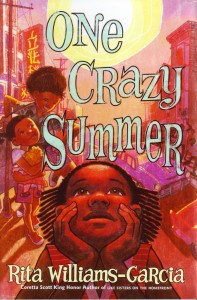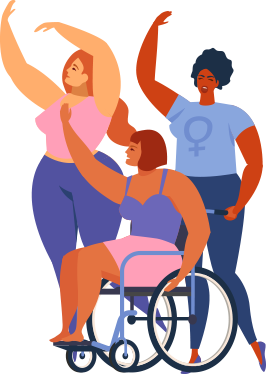I am a good liberal.
In fact, I am a good liberal about being a good liberal. That means that I recognize that my activism is always a work in progress, that I must constantly strive to question and check my own privilege, that I must consciously work on expanding my vocabulary and understanding, I must broaden my horizons and knowledge base to better inform my positions, and acknowledge that there is always something more for me to know.
I’m a good liberal about being a good liberal and I’m damn proud of that.
So why had I never heard of Bobby Hutton?
 When he was 16 years old, Bobby Hutton was the very first Black Panther recruit. When he was 17 years old, Bobby Hutton lead a protest march on the California state capitol. And Bobby Hutton never got to be 18 years old, because two weeks before his birthday, the Oakland police murdered him. (more on Bobby Hutton)
When he was 16 years old, Bobby Hutton was the very first Black Panther recruit. When he was 17 years old, Bobby Hutton lead a protest march on the California state capitol. And Bobby Hutton never got to be 18 years old, because two weeks before his birthday, the Oakland police murdered him. (more on Bobby Hutton)
I’m a good liberal, damn it, why did I find out about Bobby Hutton from a children’s book!?
Rita Williams-Garcia’s masterful One Crazy Summer is ostensibly the story of three sisters (Delphine, Vonetta, and Fern) who spend a summer reconnecting with the mother (Celeste, who now calls herself Sister Nzilla) who has left their family to “find herself” in 1968. In many ways, it is a very traditional children’s book: the story of a summer that changes everything for the characters, the story of an older sister who learns that she doesn’t always have to be in control, the story of our three young characters learning and growing and changing. It’s those “traditional” hallmarks that will help ensure this book is a classic that generations of readers can relate to. But what makes One Crazy Summer MORE than that is everything that makes it non-traditional. I don’t think I’ve ever read a children’s book that looks so uncompromisingly at what you sacrifice as a woman to be a mother, particularly the unique sacrifices that would exist in the year 196 8. I have certainly never read a children’s book that has a mother like Sister Nzilla – a mother who is neither a villain or a redeemed heroine, but who is person, on her own terms, struggling to find out what it means to be a mother and a free person. And, of course, I’ve never read a children’s book where our characters learn about revolution from the Black Panthers. All those elements are what make One Crazy Summer something special and unique, something rare and beautiful that draws you in simply because you want to understand and inhibit and know its world.
8. I have certainly never read a children’s book that has a mother like Sister Nzilla – a mother who is neither a villain or a redeemed heroine, but who is person, on her own terms, struggling to find out what it means to be a mother and a free person. And, of course, I’ve never read a children’s book where our characters learn about revolution from the Black Panthers. All those elements are what make One Crazy Summer something special and unique, something rare and beautiful that draws you in simply because you want to understand and inhibit and know its world.
But I am not here, exactly, to review One Crazy Summer (although it is, of course, worthy of review and analysis!) the goal of the Diversify Your Reading challenge is to talk about how the book affected me as a reader.
And Bobby Hutton is how this book affected me as a reader.
Lil Bobby Hutton is in every corner of One Crazy Summer. Learning his story makes Delphine, our no-nonsense narrator, question everything she thinks she knows about how the world works. It also makes her afraid. If Bobby Hutton could be shot and killed while he was unarmed and stripped down to his underwear is it safe to be around the Black Panthers? The brilliance of having this be one of Delphine’s fears is how Williams-Garcia then lets Delphine understand that the real question Bobby Hutton’s death should have her asking is this: is it safe to be black in America? And if it’s not what I am, Delphine, going to do about that?
This is a real question the Black Panthers strove to address and answer: what does it mean to be black in America, when a 17 year old boy can be shot dead on the street by the police for no reason? What does it mean and what can we do to change what it means? What can we do to change America?
Bobby Hutton’s death, Bobby Hutton’s life and activism, raises these questions – questions all Americans should be called upon to answer, both in 1968 and in 2011.
And I, good liberal that I am, had never heard of Bobby Hutton.
Reading One Crazy Summer did much more than just cause me to go look up Bobby Hutton and find out more about him. (though I am grateful this book afforded me the opportunity to do that!) That’s too simple an answer to “how this book affected me as a reader.” Bobby Hutton, One Crazy Summer, the question about what any of can do to change the country we live in and the world we’re a part of – reading this book was a reality check for a good liberal like me. I know there’s always more for me to know, but I honestly wasn’t prepared to find it in a children’s book about the 1960s. “I know a lot about that era,” I assured myself. “And I know a lot about the Civil Rights Movement too. If anything, I’ll just enjoy this because Rita Williams-Garcia is a great writer and this is a unique era to be featured in kid lit.” And as I comforted myself with all my knowledge and my good liberal-ness, there was Bobby Hutton.
It was more than a reality check: it was a reminder that the best books about “diversity” do more than fulfill check boxes in an effort to educate you. The best books about diversity, like One Crazy Summer, get straight to your heart and your brain and open the world up to you – they make you, like Delphine, ask questions about Bobby Hutton that are more than “So, who was this guy?” and are, instead, “What did he mean? What can I learn from his life? How can his life make my life better and more meaningful?”
These questions are relevant and worth asking to readers of all ages, but they have a particular resonance, I think, with children and teens. That’s the reason we, as librarians and teachers, must have these books on our shelves and get them into our patrons and students hands. Books like One Crazy Summer don’t force answers on you, they do something far more valuable: they get you to ask the questions.



